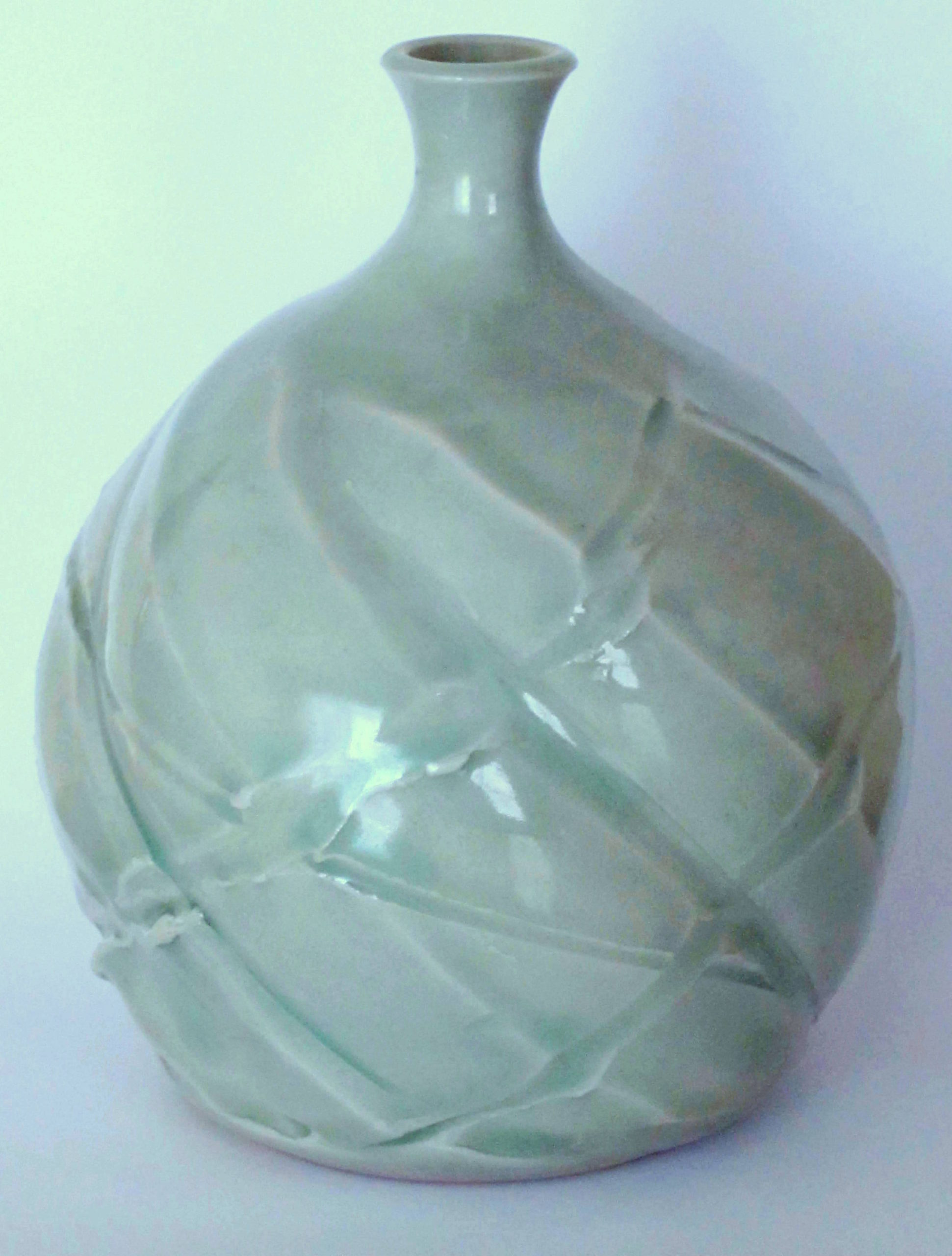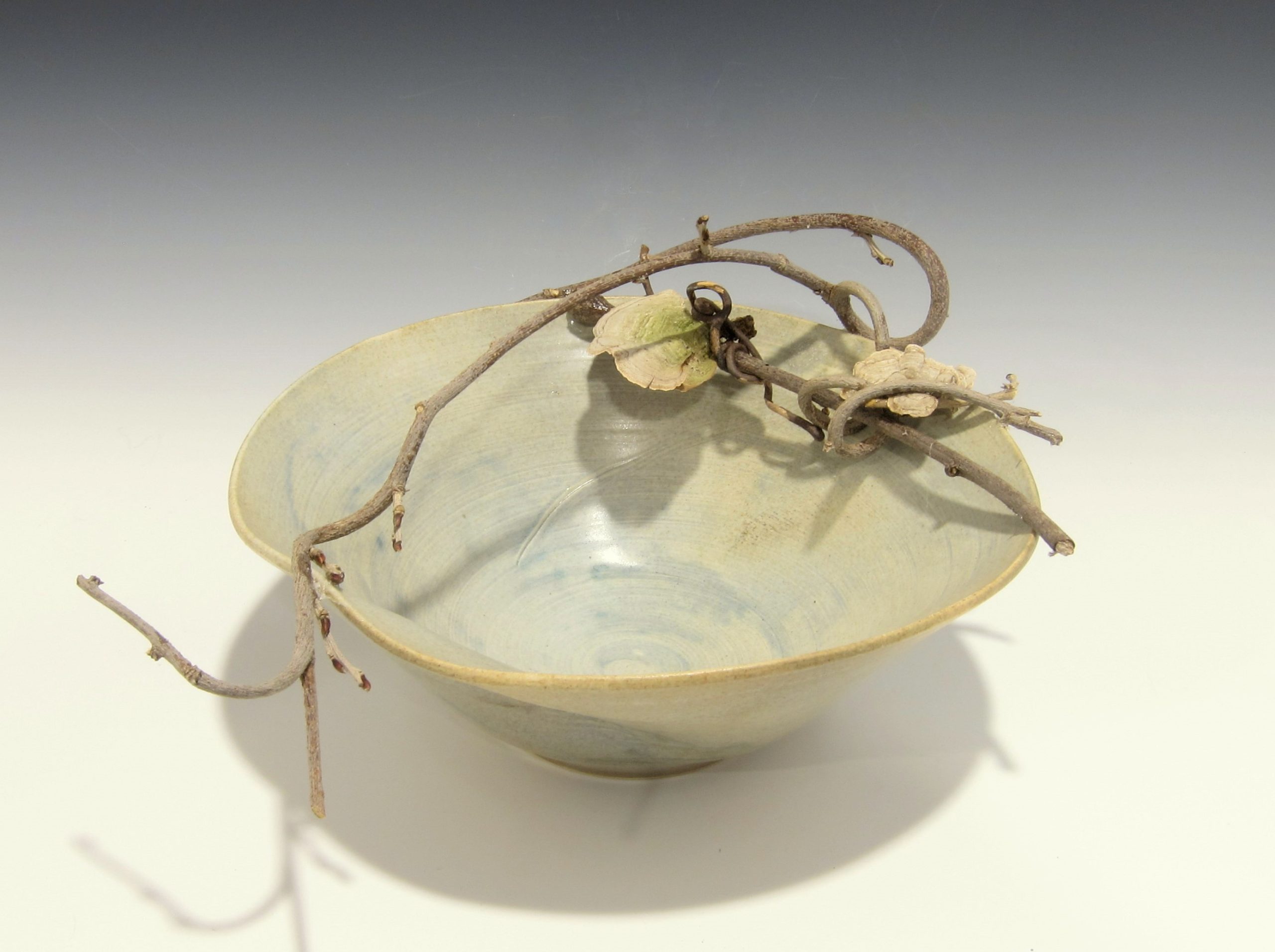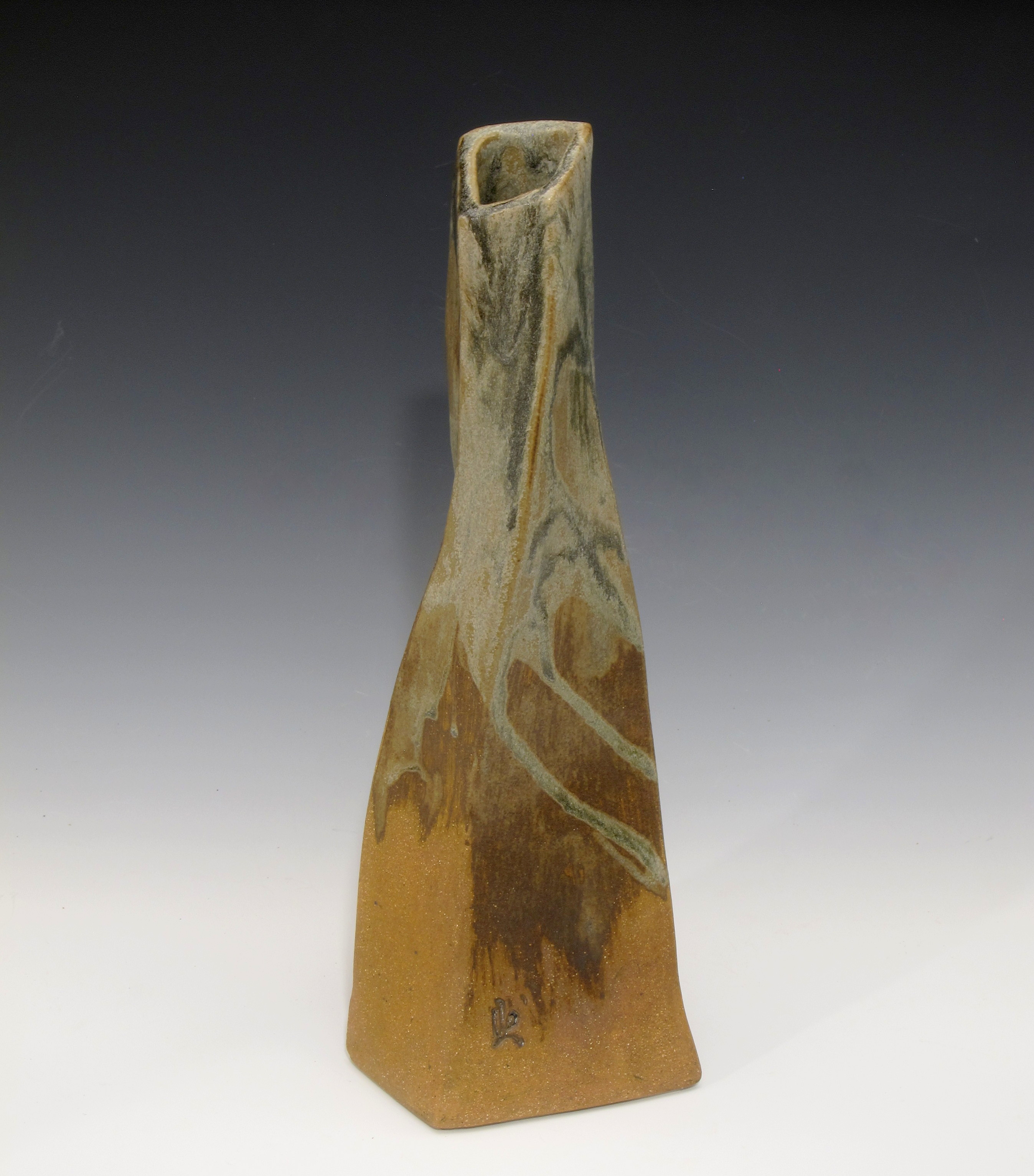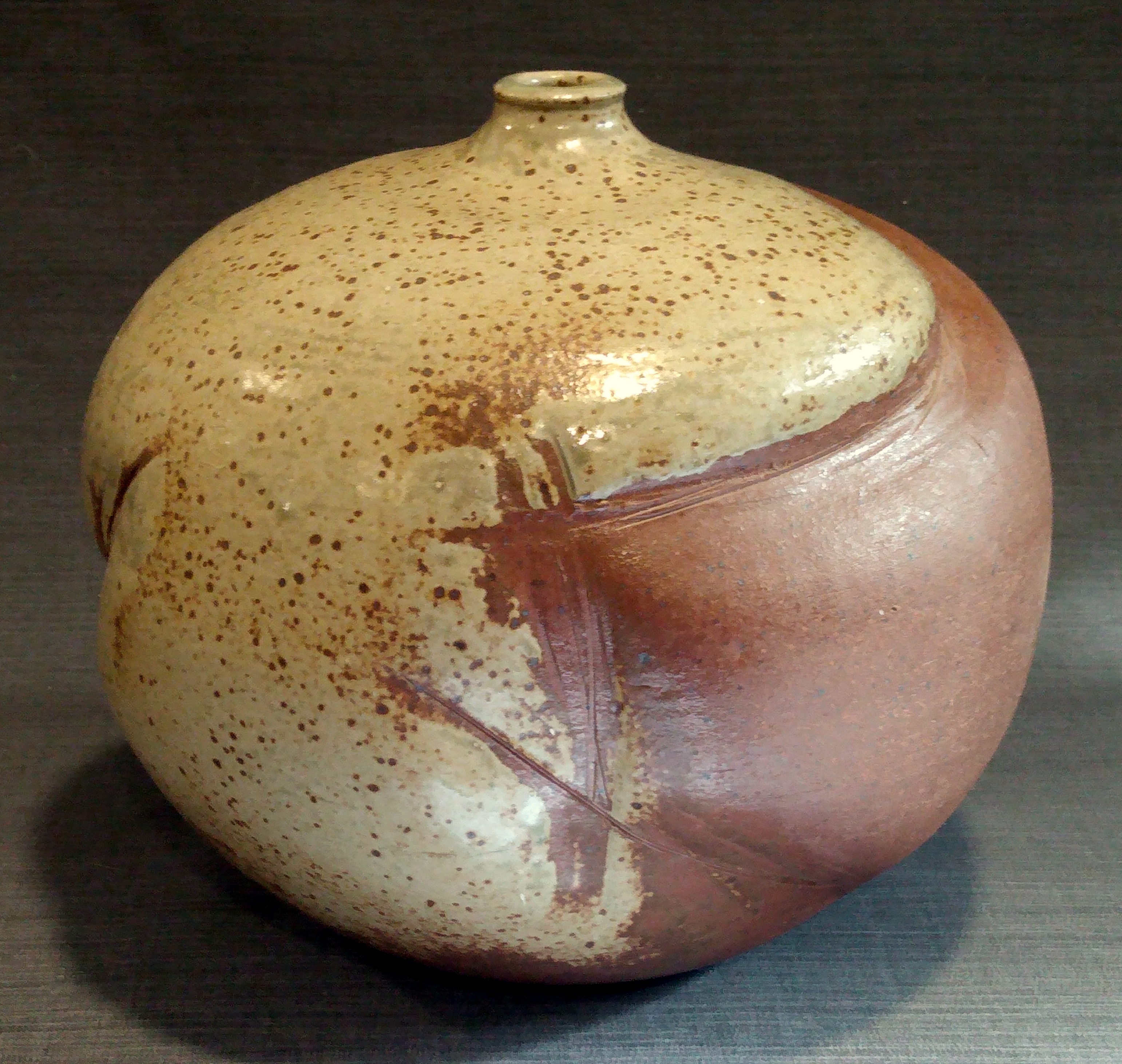Vicki Lederman
Ceramics
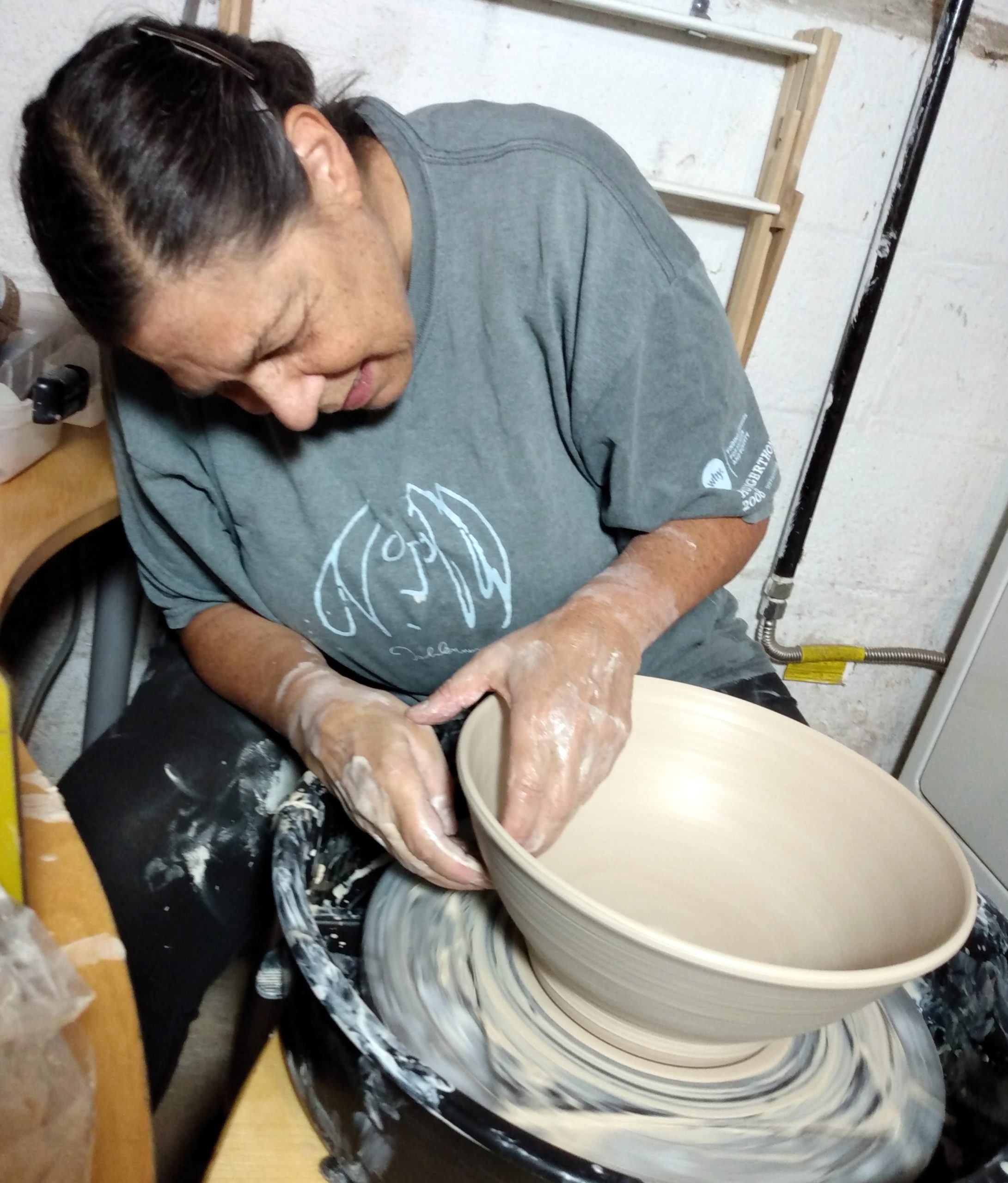
Vicki studied ceramics at Betsalel Academy of Art & Design in Jerusalem and earned her MFA in Ceramics from Antioch University. She was awarded a Fellowship by the NJ State Council on the Arts for her ceramic work and maintains a studio in her home in Summit, NJ, where she teaches individuals and small groups of students. She’s developed a methodical, step-by-step approach to throwing with clear, simple techniques that can help almost anyone learn to throw and improve their skills. Vicki also enjoys guiding more advanced students in exploring their artistic expression and finding their signature style, melding form and decoration so they work harmoniously together. Her own work is influenced by the quiet beauty of the natural world and expressive movement: organic, lyrical shapes; calm, soothing colors, and free-form brushwork.
Artist Statement:
I learned to understand things through touch and observation. As a young child, I constantly touched everything, feeling how the object responded to my touch. I’d feel its texture, malleability, warmth or coolness, strength or fragility. Even as an adult, I still want to touch everything!
Ceramics is the perfect medium for me, allowing me to work tactilely and visually. It’s all-embracing, from the physics of forming the soft clay, to the complex chemistry of glazes, to the transformation to permanency by fire or heat. I love it all!
I enjoy altering wheel-thrown shapes, especially bowls, with pieces of bark or wood and adding found natural materials like twisted wisteria vines and bits of lichen, tree fungus, shells, driftwood or sea glass and other findings. Clay has endless form and design possibilities, and rather than limit myself to one style, I’ll go wherever the clay and my hands take me. I work on opposite ends of the spectrum, in both refined porcelain and rough, dry, primitive forms inspired by ancient Japanese Bizenware. I also work with slabs, creating clay garden portraits and manipulating slabs into bas reliefs and semi-three-dimensional forms so the subject begins to emerge organically out of the slab.
Work
